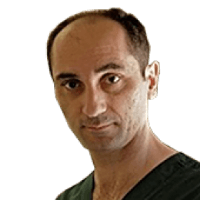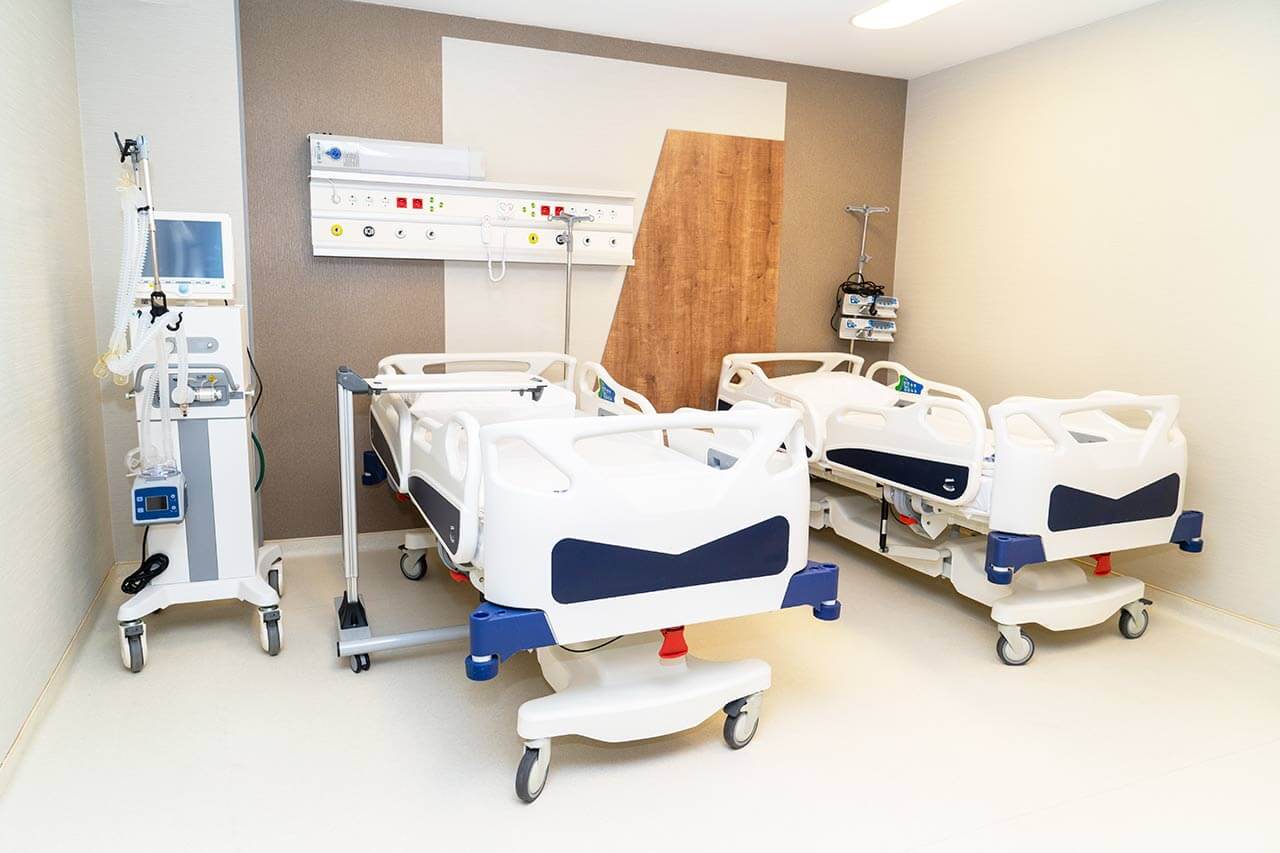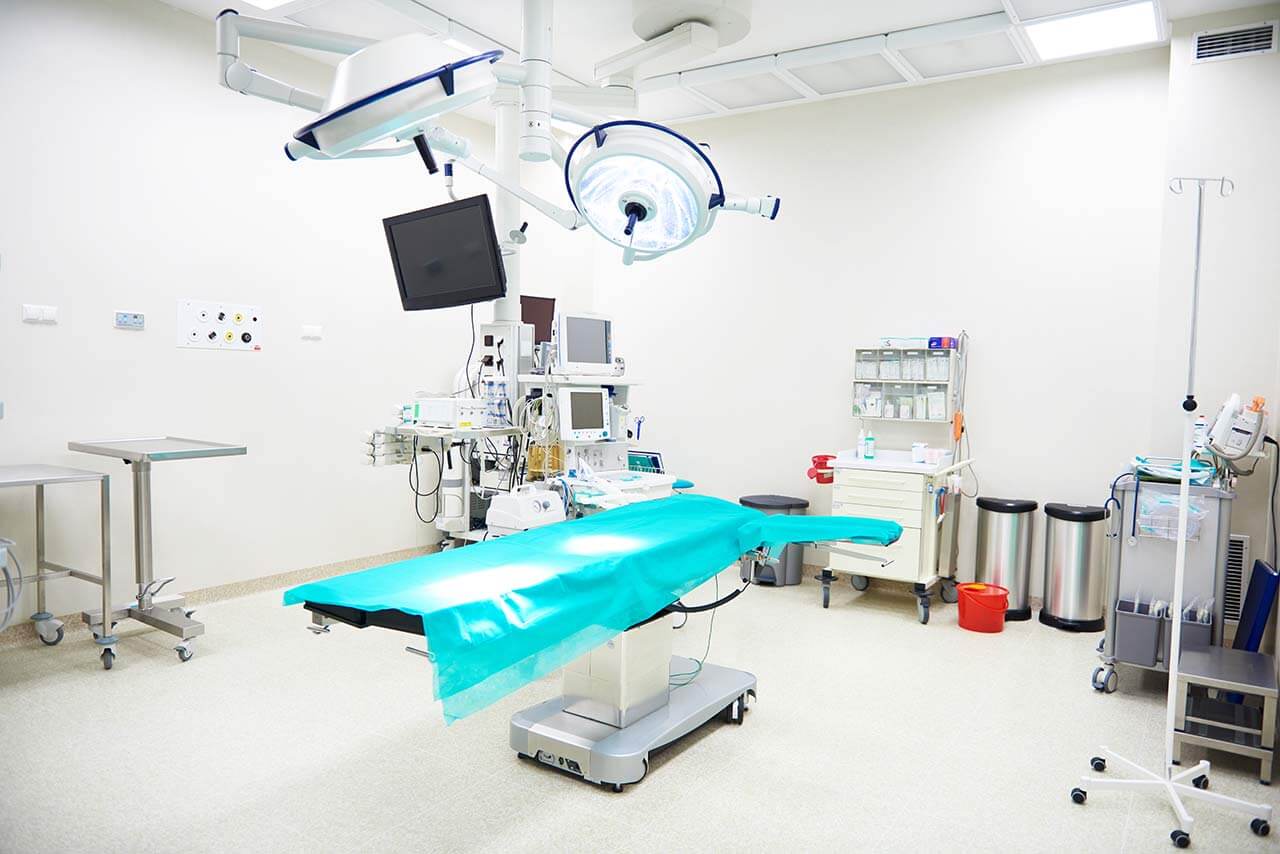
The program includes:
- Initial presentation in the clinic
- clinical history taking
- review of medical records
- physical examination
- laboratory tests:
- complete blood count
- biochemical analysis of blood
- inflammation indicators
- indicators blood coagulation
- abdominal ultrasound
- colonoscopy, sigmoidoscopy with biopsy
- conservative treatment with:
- anti-inflammatory agents such as 5-ASA
- systemic corticosteroids
- topical corticosteroids
- immunomodulators
- symptomatic treatment
- control examinations
- cost of essential medicines and materials
- nursing services
- full hospital accommodation
- explanation of future recommendations
Required documents
- Medical records
- Colonoscopy (if available)
Service
You may also book:
 BookingHealth Price from:
BookingHealth Price from:
About the department
The Department of Gastroenterology offers the full range of diagnostics and treatment of various diseases of the gastrointestinal organs. The doctors of the department work with the advanced diagnostic equipment, which allows to reveal all types of gastrointestinal pathologies at the early stages. The treatment program is selected on an individual basis, taking into account the specific indications, needs and wishes of the patient. The Chief Physician is Dr. med. Maor Lahav.
The department provides diagnostics and treatment of the following diseases:
- Colitis
- Heartburn (GERD)
- Hemorrhoids
- Crohn's disease
- Chronic gastritis
- Chronic duodenitis
- Reflux esophagitis (reflux disease)
- Chronic pancreatitis, other pancreatic diseases
- Gallbladder diseases
- Stomach and intestinal ulcer
- Nonspecific ulcerative colitis
- Gastrointestinal bleeding
- Syndromes of the operated stomach
- Liver diseases
- Barrett's esophagus
- Stomach cancer
- Liver cancer
- Colon and small intestine cancer
- Rectal cancer
- Benign liver tumors
- Pancreatic cancer
- Cirrhosis
- Hepatitis C
- Other pathologies
The diagnostic range of the department includes:
- Gastroscopy (also with biopsy)
- Colonoscopy (also with biopsy)
- Esophagoscopy (also with biopsy)
- Computed tomography (CT)
- Positron emission tomography (PET-CT)
- Magnetic resonance imaging (MRI)
- Virtual colonoscopy
- Examination of the digestive tract sphincter
- Capsule endoscopy
- Helicobacter Pylori tests
- Functional diagnostics (for example, electrocardiography, dopplerography)
- Abdominal ultrasound
- Liver function tests
- Other diagnostic options
The therapeutic spectrum of the department includes:
- Stent implantation to restore the patency of the gastrointestinal tract
- Dilatation of esophageal stenosis
- Endoscopic polyp removal
- Removal of the biliary tract stones (laparoscopic techniques)
- Vagotomy (surgical technique to treat gastric ulcer)
- Minimally invasive surgery
- Open surgical interventions
- Endovascular interventions
- Endoscopic closure of the fistula between trachea and esophagus
- Multiple-organ surgery (performed simultaneously on several organs)
- Innovative Fast Track Rehabilitation Program to recover patients after operations on the gastrointestinal tract
- Hyperthermic intraperitoneal chemotherapy (HIPEC) for the treatment of gastrointestinal malignant tumors
- Gamma Knife therapy
- Focused ultrasound ablation
- Other treatment methods
Curriculum vitae
Education and Clinical Experience
- 1995 Higher Medical Education at the CIS University.
- Internship in Internal Medicine and Gastroenterology, Sheba Medical Center, Israel.
- Long Internship and Participation in International Researchers, Hospital at the University of Chicago, USA.
Dr. Maor Lahav is a leading Israeli gastroenterologist, a doctor with more than 21 years of experience. He is a world-class specialist in the field of accurate diagnostics and minimally invasive treatment of a wide range of diseases of the gastrointestinal tract, such as Crohn's disease, atrophic gastritis and many others.
The doctor removes tumors and stones using the most advanced methods, such as ERCP (endoscopic retrograde cholangiopancreatography) or ESD (endoscopic submucosal dissection). He also extensively applies radiofrequency ablation (RFA) in the treatment of Barrett's esophagus, endoscopic ultrasound (EUS) for the diagnostics of gastrointestinal tumors, double balloon endoscopy (DBE) for the diagnostics and treatment of small intestine and many other very latest techniques.
Thanks to his knowledge and experience, Dr. Lahav restores health of hundreds of patients annually.
Photo of the doctor: (c) Assuta Medical Centers
About hospital
The Assuta Hospital Tel Aviv was opened in 2009 and today it is one of the largest, modern hospitals with the highest treatment success rates in Israel. The сlinical practice is based on the use of the state-of-art technologies in the world of medicine. The compliance with the high level of medical care and cooperation with the best doctors in Israel is the cornerstone of the hospital’s work and a long tradition of Assuta.
The main clinical focuses of the medical facility include cardiology, neurosurgery, orthopedics, surgery, oncology, gynecology, urology, gastroenterology, reproductive medicine, bariatrics, rehabilitation, etc.
The hospital has 16 state-of-the-art operating rooms, more than 200 beds, resuscitation units, and 2 monitoring laboratories, as well as one of the largest Imaging Diagnostic Centers and the ultramodern Cancer Center.
The hospital was awarded the prestigious certificate of the Joint Commission on Accreditation of Healthcare Organizations for its compliance with high standards of quality and safety of medical care.
Photo: (с) depositphotos
Accommodation in hospital
Patients rooms
The patients of the Assuta Hospital Tel Aviv live in comfortable spacious rooms of a five-star hotel level. The patient rooms are designed in bright colors and equipped with air conditioning, cable TV and other amenities. The rooms have a computer connected to the Internet. In addition to hospital wards, there are also hotel rooms for friends and relatives accompanying the patient, a library, a lecture hall, a recreation room, a prayer house for patients of all religions. On the territory of the hospital there are shops and cafes, where one can drink a cup of aromatic coffee or tea and have a snack.
Meals and Menus
The patients of the hospital are offered a balanced delicious three meals a day: breakfast, lunch and dinner. There are several menus to choose from, including a dietary one.
Further details
Standard rooms include:




